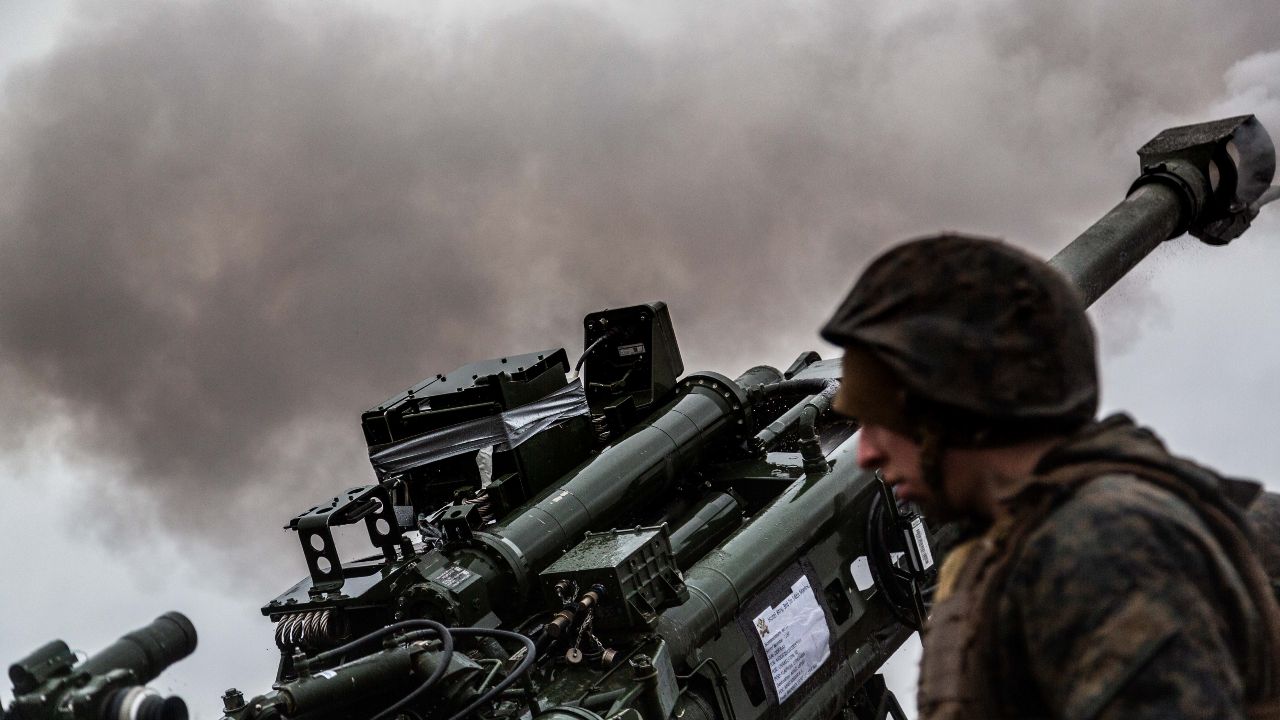The Kremlin is waging war on Ukraine by using the West and waging war on the West by using Ukraine. Its weapons are chiefly psychological, not military: the aim is to sow fear, uncertainty, doubt, and despair.
With Ukraine, Vladimir Putin’s aim is to instill feelings of abandonment and humiliation. Ukraine’s great desire is to join the West: broadly defined, to enjoy the cultural, legal, political, and social benefits of living in a free society. The country is on the way to achieving this, despite great delays and difficulties. But it needs external support: not just financial and military, but psychological, the knowledge that Western countries share its aspirations.
The Russian leader’s aim is to show Ukrainians that they are wrong. Like Czechoslovaks in 1938, 1948, or 1968, or Hungarians in 1956, or Poles at Yalta, they have misplaced their trust. The West cares only about its own interests. All the talk of values and principles is just window-dressing.
A military strike on Ukraine — even a limited one — that does not prompt a serious, united Western response will teach Ukrainians this harsh lesson. The paradox here is that in practice, little will have changed inside Ukraine. The country could continue to work to establish the rule of law, political institutions, and a thriving economy. But Putin is betting that the psychological blow of a geopolitical setback will be enough to prevent his big Slavic neighbor from becoming the thing he most fears: a success.
But Ukraine is also a weapon against the West because the Kremlin-created crisis exploits deep divisions in attitudes to security, history, and the eastern neighborhood. Some Western countries care deeply about Ukraine’s sovereignty and prospects. Others care less, or not at all. To take advantage of this, Putin can attack Ukraine in a way that arouses sharply different reactions in the transatlantic alliance.
Imagine, for example, a limited Russian rocket strike inside Ukraine. It could hit unpopular, controversial targets such as the training camp of a far-right paramilitary group. Any such attack would prompt American outrage but European hesitation. If the EU did implement US-led sanctions, Putin could respond by halting or restricting Europe’s gas supplies.
Would European politicians really tell their voters to put up with cold, dark homes, lost jobs, looming shortages of fertilizer, and the other results of a gas-supply crisis, just to protect what many would see as neo-Nazis? Europeans might well feel that the American sanctions are too harsh, and that now is the time for dialog, not confrontation (and in the meantime, please turn the gas back on). If even a minority of European decision-makers follow the latter path, they doom the European Union’s foreign-policy ambitions and the Atlantic alliance. The United States cannot care more about European security than the Europeans do.
Such a victory would pave the way for other Russian goals: long-term gas contracts that entrench Kremlin power in the heart of European economics and politics; neutral or demilitarized buffer zones on its borders, and an end to multilateral rule-making and enforcement.
Russia has many other ways of achieving this. The point is that the weakness is there, and obvious. The risk is low. The potential gain is huge. So, therefore, is the danger. Within months, the Kremlin could be dictating terms to Europe.
None of this is inevitable. Western countries are far bigger and richer than Russia. They can make Putin’s gamble seem unappealing and dangerous, by resisting his aggression and supporting Ukraine. For their part, Ukrainians should remember that neither Russian provocations nor Western support matter as much as their own solidarity and determination.
Europe’s Edge is CEPA’s online journal covering critical topics on the foreign policy docket across Europe and North America. All opinions are those of the author and do not necessarily represent the position or views of the institutions they represent or the Center for European Policy Analysis.





